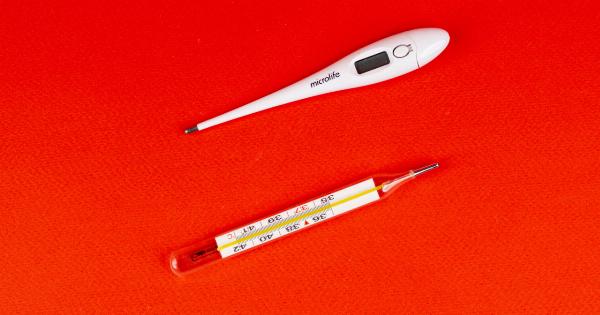Going outside to enjoy the sunshine is always a fun activity for most people. However, too much exposure to ultraviolet (UV) radiation from the sun can cause skin damage, accelerate aging, and even increase the risk of skin cancer.
To protect against these potential health hazards, sun protection is necessary. In this article, we’ll be discussing two common methods of sun protection – sunscreen and umbrella – and determining which offers better sun protection.
What is Sunscreen?
Sunscreen is a product that helps to protect the skin from UV rays by absorbing or reflecting the radiation. It contains ingredients that either physically block or chemically absorb UV radiation.
Sunscreens usually come in the form of lotions, creams, sprays, and gels, which are applied directly to the skin before going outside.
What is an Umbrella?
An umbrella is a portable shade device that can be used to provide shelter from the sun’s rays. The device consists of a canopy made of waterproof fabric, which is supported by a metal frame.
Umbrellas come in a variety of shapes and sizes, and they can be either manually or automatically operated.
The Pros and Cons of Sunscreen
One of the primary advantages of using sunscreen is that it can provide broad-spectrum protection against both UVA and UVB radiation. Sunscreen is easily applicable and can be reapplied as needed.
It comes in different sun protection factor (SPF) levels designed to provide varying degrees of protection. Additionally, sunscreen is often integrated into makeup and skincare products, making it easy to apply without requiring a separate product.
However, there are also some potential downsides to sunscreen use. Sunscreen can sometimes be messy and greasy, and it takes time to apply. It can also cause skin irritation or allergic reactions in some individuals.
Moreover, some sunscreens contain chemicals that may be harmful to the environment, such as oxybenzone and octinoxate which are toxic to coral reefs, and can leak into the water and other ecosystems when applied to the skin at the beach or swimming pool.
The Pros and Cons of Umbrellas
When it comes to sun protection, umbrellas provide a portable source of shade wherever you go. They can also be used to keep you dry in rainy weather, making them a versatile accessory.
Umbrellas come in varying sizes, meaning that they can be shared by people or animals, and they don’t require any special preparation or application before use.
However, umbrellas do have some drawbacks. First and foremost, the use of umbrellas is not always practical, especially when engaging in outdoor activities. Carrying an umbrella around can be inconvenient, especially in crowded or windy areas.
Additionally, not all umbrellas are made equal. Some may not offer full coverage or may be made of materials that allow some UV rays to pass through. Therefore, it’s important to choose a high-quality umbrella that provides sufficient shade coverage.
Sunscreen or Umbrella?: Which Offers Better Sun Protection
Comparing sunscreen and umbrellas is not a straightforward matter. Each offers unique advantages and disadvantages.
Additionally, the effectiveness of each will depend on several factors, such as the sun’s intensity, the length of exposure time, and the user’s skin type.
It’s essential to note that although umbrellas provide shade, they don’t entirely block UV radiation. According to the Skin Cancer Foundation, shade can reduce exposure to UV radiation but doesn’t offer complete protection.
Additionally, umbrellas are not always practical when outdoors, especially in windy or crowded areas.
On the other side, sunscreen is individually applied to the skin and can offer complete coverage on exposed skin, Therefore, it can provide better sun protection compared to umbrellas in practical terms.
However, choosing the right sunscreen is also crucial when thinking about effectiveness. Look for sunscreen that provides broad-spectrum protection against both UVA and UVB radiation with an SPF of at least 30.
It’s essential to consider and properly apply sunscreen to all the exposed skin on a regular basis, especially when enjoying outdoor activities.
The Bottom Line
Choosing between sunscreen and umbrella depends on your personal preferences and circumstances.
Sunscreen offers a portable source of sun protection that’s easy to apply, and it’s available in different SPF levels to provide varying degrees of protection. However, It can be messy or greasy, take time to apply, and may cause irritation or allergic reactions in sensitive skin.
Umbrellas offer a simple and easily accessible source of shade from the sun, but they may not offer complete protection from UV rays and may not be practical in all outdoor scenarios.
It’s important to remember that regardless of whether you choose sunscreen or an umbrella, sun protection is vital to protect your skin from harmful UV radiation that causes premature aging and skin cancer.
It’s advisable to seek shade when at the beach, sporting events, or outdoor activities. You can also wear sun-protective clothing like hats, long-sleeved dresses, and shirts to offer additional protection.




























